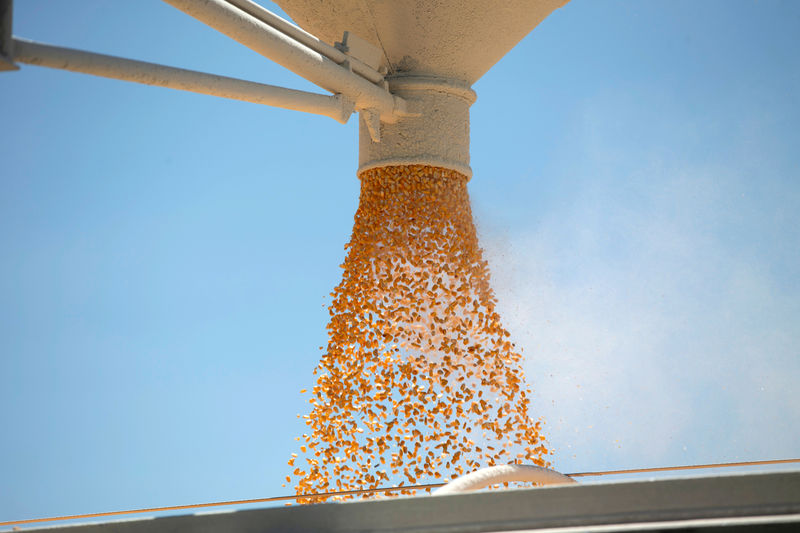BEIJING (Reuters) - China has agreed to make unspecified new purchases of farm products from the United States, President Donald Trump said after meeting his Chinese counterpart Xi Jinping in Japan.
China was the top buyer on average of U.S. agriculture exports from 2010 to 2017, making purchases worth $21.6 billion a year, U.S. Department of Agriculture (USDA) showed.
While investors await details of the agreement and confirmation from China, analysts and traders say there are limits to how much more China can buy from the country that is typically one of its top suppliers of soybeans, grains and meat.
Below are details of where future Chinese purchases could rise.
(Graphic: U.S. agriculture exports by category and top destinations - https://tmsnrt.rs/2Yo2ZFp)
SOYBEANS
The United States is usually China's No. 2 supplier of soybeans, a product likely to make the list of new purchases even though an African swine fever epidemic in China has dented demand from Chinese pig farmers.
Soybean imports in the 2019/20 crop year are forecast by USDA at 87 million tonnes.
The USDA reported a large soybean sale on Friday of 544,000 tonnes to China, an apparent goodwill gesture a day before Trump and Xi met for the first time in seven months.
There could be a few more similar purchases in coming months as tensions ease, said Darin Friedrichs, senior Asia commodity analyst at INTL FCStone.
But any large deals were expected to be conditional on progress in talks and would be made over a long timeframe, he added.
GRAINS
China has typically been the top buyer of U.S. sorghum and, despite a 25% U.S. trade tariff on the grain, it has still bought a few cargoes in recent months.
But sorghum prices are rising, making it less viable for Chinese buyers to import the grain when they already face such a high tariff.
Demand for sorghum and corn, whose prices have climbed due to adverse weather conditions, were both very weak because of the African swine fever epidemic, said a trader with a state-owned firm who was not allowed to be identified.
"I don't think chances are high" for more purchases, he said.
Regarding Dried Distillers Grains with Solubles (DDGS), China has announced it would keep anti-dumping duties on the feed ingredient, which the trader said made it clear Beijing did not plan to boost its imports.
Purchases of U.S. wheat have historically been relatively small. Beijing has been pushing Chinese growers to plant more high quality wheat and boosting imports would undermine this policy, said a Chinese trader, who was not allowed to be identified.
ETHANOL
U.S. ethanol imports could feature in upcoming purchases, said Friedrichs, helping Trump win support from ethanol producers, one of his voter bases which has been hit by waning Chinese demand and U.S. initiatives affecting the industry.
But Chinese trade tariffs are prohibitive and there are no government reserves for the biofuel, limiting the amount that could be purchased by state buyers under Beijing's orders, said an industry source who was not allowed to be quoted.
PORK
China, which usually accounts for half the world's pork production, is expected to need all the pork it can find abroad as African swine fever devastates domestic farms.
It has already made some large purchases from the United States, even with U.S. trade tariffs of 50% in place.

Still, much bigger exports of pork to China threaten to drive up prices in the United States, which would hurt U.S. consumers and runs the risk of backfiring on Trump as he seeks re-election, Friedrichs said.